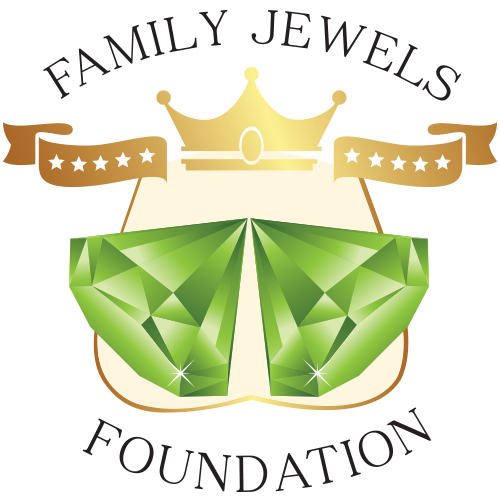Jaimeson Jones
 Simply put, the Family Jewels Foundation is about Jaimeson Jones. The Foundation is an homage to Jaimeson, Bothell XC runner and WSU rower, who died in 2010 at age 20 from a recurrence of testicular cancer. This boy was first diagnosed with the 95%-curable cancer when he was just 14, but he had waited a year before seeking help for his symptoms of left-testicle swelling and, eventually, pain. Because of his embarrassment about his symptoms, he suffered in silence and, by the time he was finally diagnosed with late-stage testicular cancer, his disease had spread throughout his body. With a poor prognosis for his recovery, Jaimeson fought his way through aggressive chemotherapy treatment and multiple life-threatening surgeries, and his cancer went into remission by the time he was 15.
Simply put, the Family Jewels Foundation is about Jaimeson Jones. The Foundation is an homage to Jaimeson, Bothell XC runner and WSU rower, who died in 2010 at age 20 from a recurrence of testicular cancer. This boy was first diagnosed with the 95%-curable cancer when he was just 14, but he had waited a year before seeking help for his symptoms of left-testicle swelling and, eventually, pain. Because of his embarrassment about his symptoms, he suffered in silence and, by the time he was finally diagnosed with late-stage testicular cancer, his disease had spread throughout his body. With a poor prognosis for his recovery, Jaimeson fought his way through aggressive chemotherapy treatment and multiple life-threatening surgeries, and his cancer went into remission by the time he was 15. He spent his high school years in remission, confiding in a friend about the runup to his diagnosis that “It just kept getting bigger and bigger, but I was too embarrassed to tell my mom.” Tragically, after 4½ years, Jaimeson's cancer recurred in his lungs at the end of his freshman year at WSU. After a year and a half of even more-horrific treatment and more surgeries, Jaimeson died in 2010 at age 20.
Jaimeson's admission about his embarrassment haunts us. This young man, with his whole life ahead of him, did not have to die.
There is an inexcusable gap in health education around this topic. Unknown to most, testicular cancer is the #1 solid tumor cancer in people with testicles between ages 15 and 44. Importantly, it is 95-98% curable when caught early. Unfortunately, due to the very nature of young people -- feeling invincible, not wanting to seek medical care and, perhaps most of all, embarrassment -- fully half of those diagnosed with testicular cancer do not seek medical care until AFTER the cancer has spread. Naturally, this worsens the prognosis. The incidence of testicular cancer is growing - in 2019, there are projected to be more than 9,000 cases in the U.S. alone. Tragically, over 400 people die every year of this highly-curable disease, half of them between 20 and 33 -- at the very beginning of the prime of their lives.
Nancy Balin
 Nancy Balin was born in Massachusetts, moved to Washington State at age 24, and graduated from law school in 1992. After a career in public service, while simultaneously founding and running the Family Jewels Foundation part-time for seven years, Nancy retired from lawyering in 2017 to devote her full-time energies to the Foundation.
The Family Jewels Foundation is an homage to Nancy’s late stepson, Bothell XC runner and WSU crew member Jaimeson Jones, who died in 2010 at age 20 from a recurrence of testicular cancer. The cancer was first diagnosed when he was just 14. As Jaimeson said, “It just kept getting bigger and bigger, but I was too embarrassed to tell my mom.”
These words haunt Nancy. Because of her teen’s embarrassment about the pain and swelling in his testicle, and his ignorance about the gravity of his symptoms, his disease had spread all the way to his neck by the time he was finally diagnosed,. Jaimeson achieved remission at age 15, but the cancer recurred at age 19, and in 2010 he died at the tender age of 20.
Nancy Balin was born in Massachusetts, moved to Washington State at age 24, and graduated from law school in 1992. After a career in public service, while simultaneously founding and running the Family Jewels Foundation part-time for seven years, Nancy retired from lawyering in 2017 to devote her full-time energies to the Foundation.
The Family Jewels Foundation is an homage to Nancy’s late stepson, Bothell XC runner and WSU crew member Jaimeson Jones, who died in 2010 at age 20 from a recurrence of testicular cancer. The cancer was first diagnosed when he was just 14. As Jaimeson said, “It just kept getting bigger and bigger, but I was too embarrassed to tell my mom.”
These words haunt Nancy. Because of her teen’s embarrassment about the pain and swelling in his testicle, and his ignorance about the gravity of his symptoms, his disease had spread all the way to his neck by the time he was finally diagnosed,. Jaimeson achieved remission at age 15, but the cancer recurred at age 19, and in 2010 he died at the tender age of 20.



